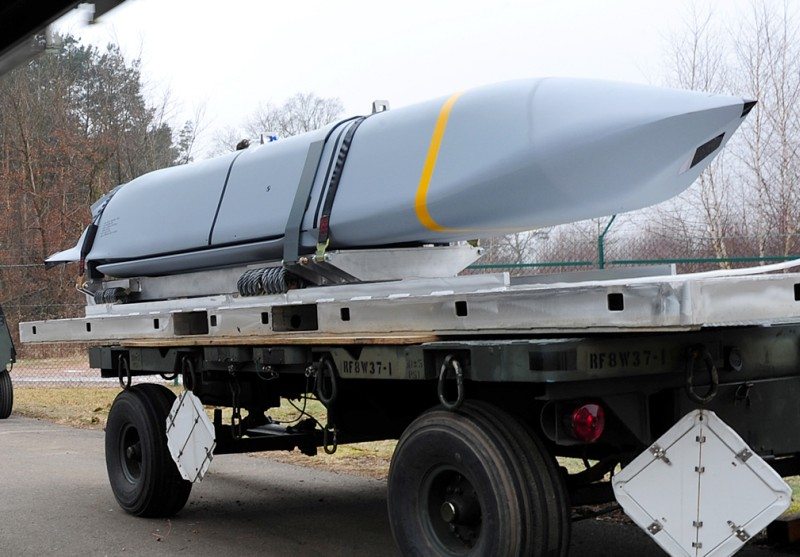RAMSTEIN AIR BASE, Germany: Members of the 86th Munitions Squadron here recently assisted a joint air to surface standoff missile team in a weeklong project of modifying several missiles as part of an Air Force-wide initiative.
Officials from Lockheed Martin Corporation, the developer of the missiles, dispatched a team to work the issue here Jan. 31 to Feb 4.
“Our team deals with retrofits, periodic maintenance inspections and making sure the AGM-158 (air-to-ground missile) is up to speed,” said Jerry Stroud, a Lockheed Martin Corp. assistant test engineer from Orlando, Fla.
Once the team members complete their modifications, Airmen from the 86th MUNS have the important task of testing and safely securing the munitions.
“After the Lockheed Martin contractors finished doing the retrofit, my crew and I performed an initiated built-in test to ensure the missiles are in perfect condition,” said Senior Airman Troy Kiel, an 86th MUNS crew chief.
Airman Kiel said he enjoyed this opportunity to work with other experts in their trade.
“It’s really a great learning experience to work with the Lockheed Martin personnel and also to learn more about the missile,” Airman Kiel said.
With the workload of this mission, it takes an effort from several Airmen.
“On our side, we have a lot of different groups working to make sure this gets done efficiently,” said Master Sgt. Daniel Clark, the 86th MUNS conventional maintenance NCO in charge.
The unit was responsible for safely retrieving, transporting and securing the missiles after the process was complete.
The task may sound simple, but it is quite labor intensive and must be done correctly.
After the repair of each missile and the return to storage, the missiles will be ready for use, said Staff Sgt. Nicholas Dillenbeck, an 86th MUNS conventional maintenance supervisor.
Having the missiles available creates a better opportunity for the Air Force’s mission to be completed successfully.
“It’s important to make the adjustment to these missiles because we’re improving reliability and reducing the risk to aircrew and aircraft involved,” said Jared Grace, JASSM program office engineer from Eglin Air Force Base, Fla. “Essentially, better safety allows for mission success.”











